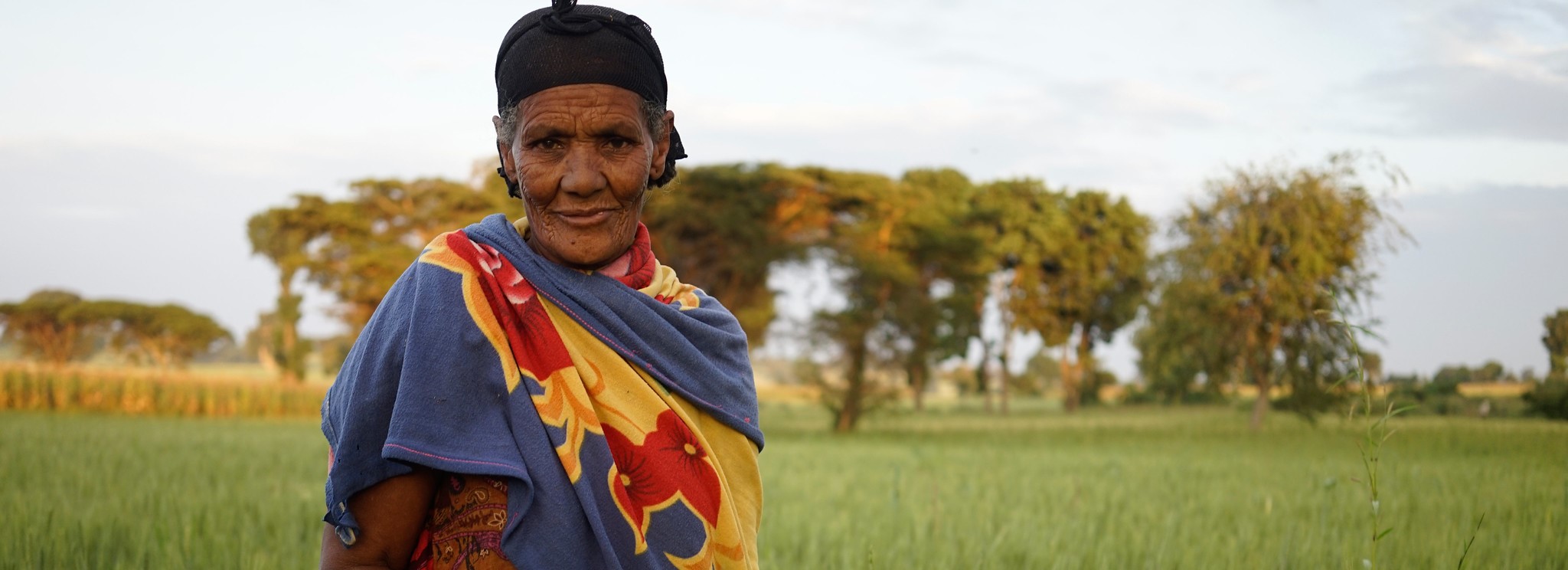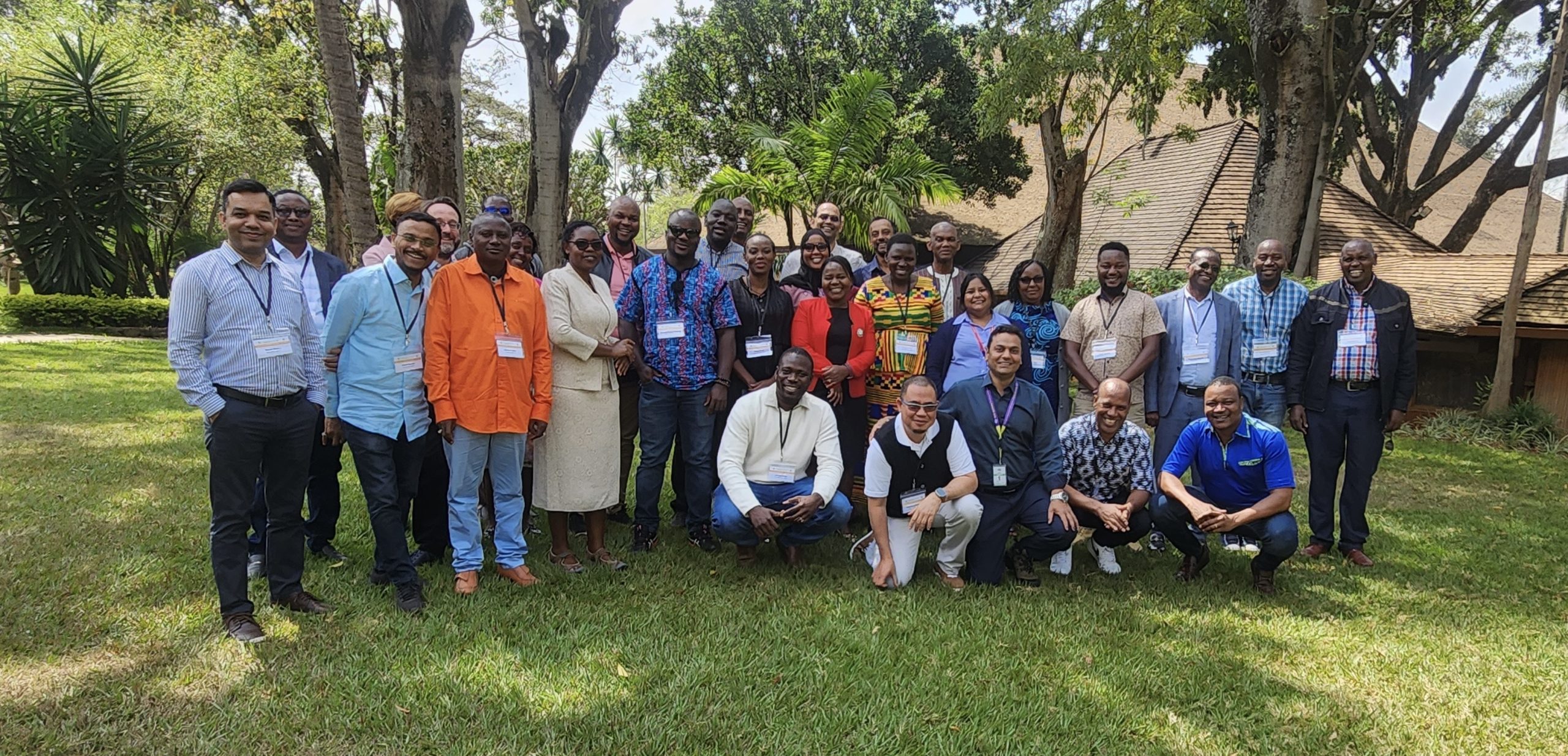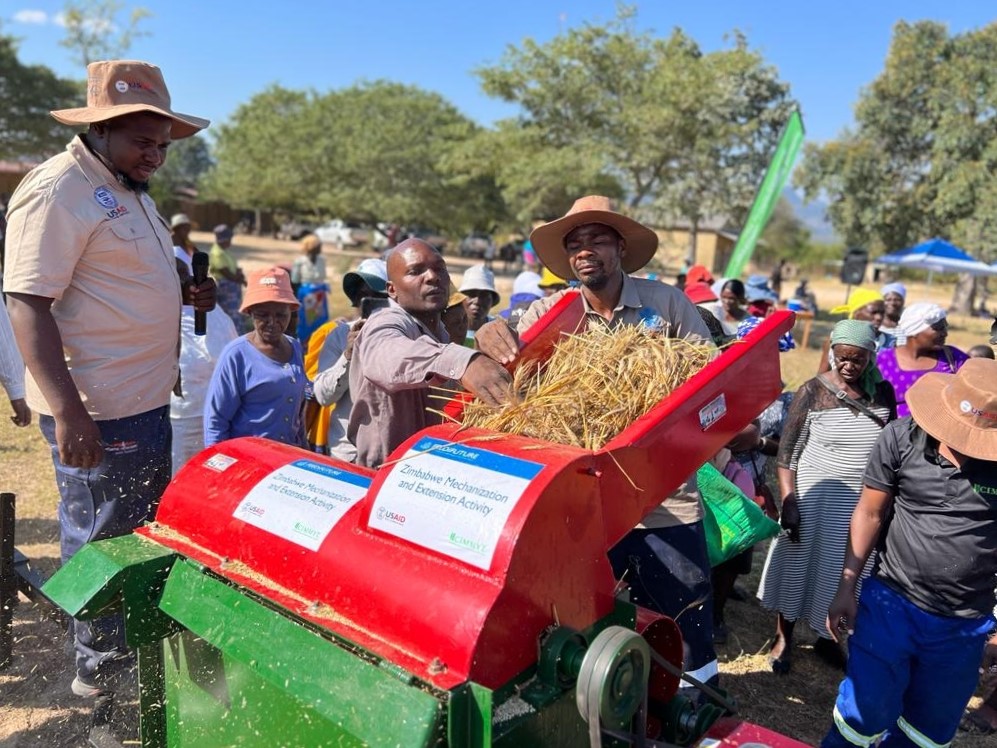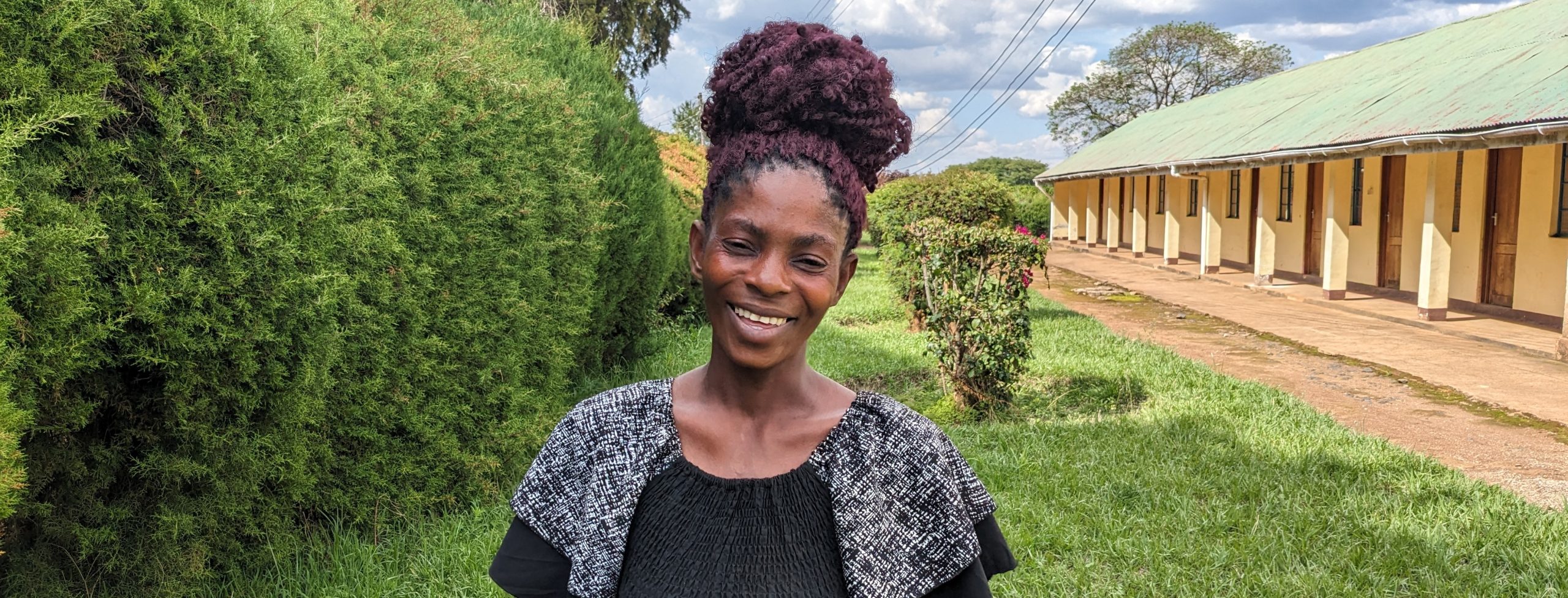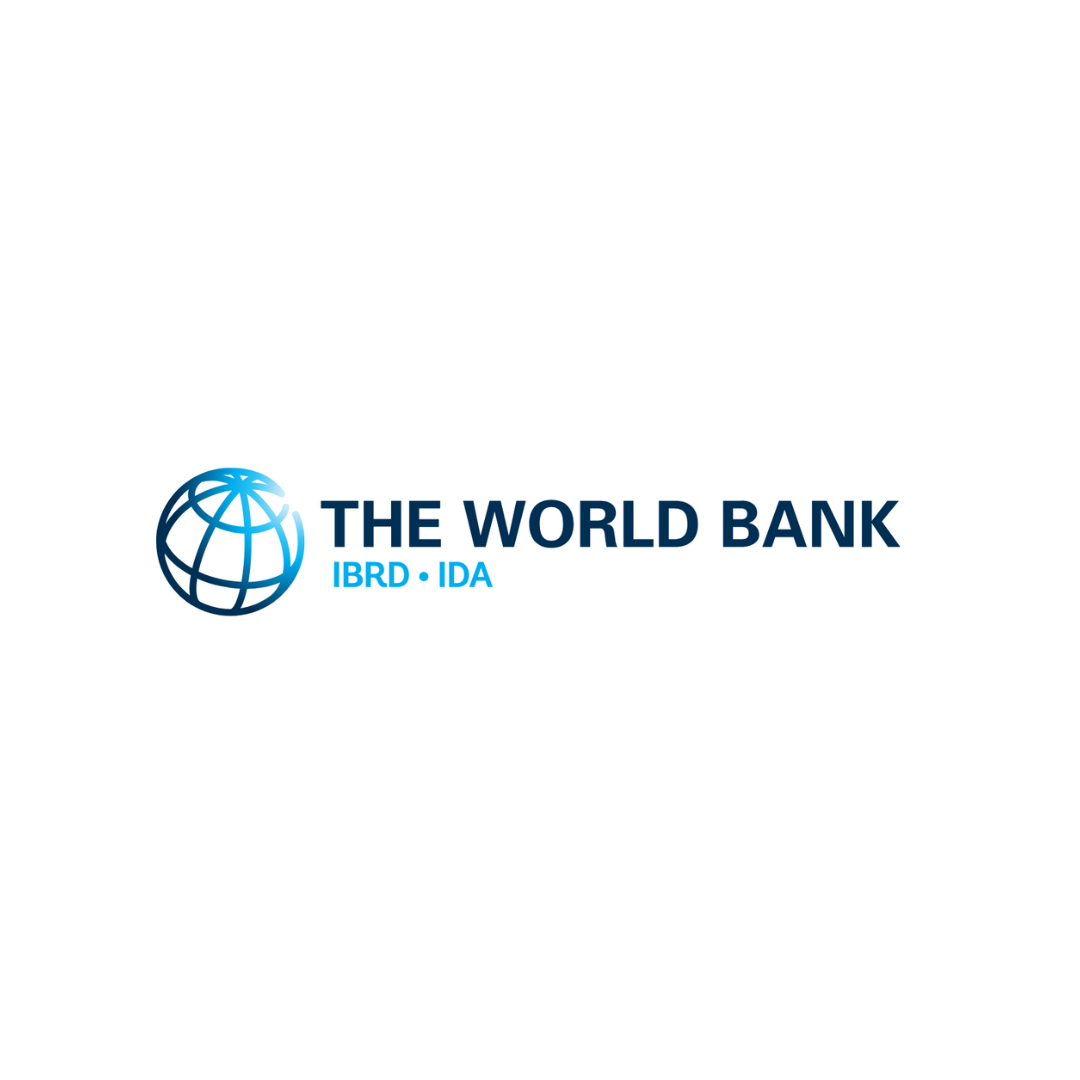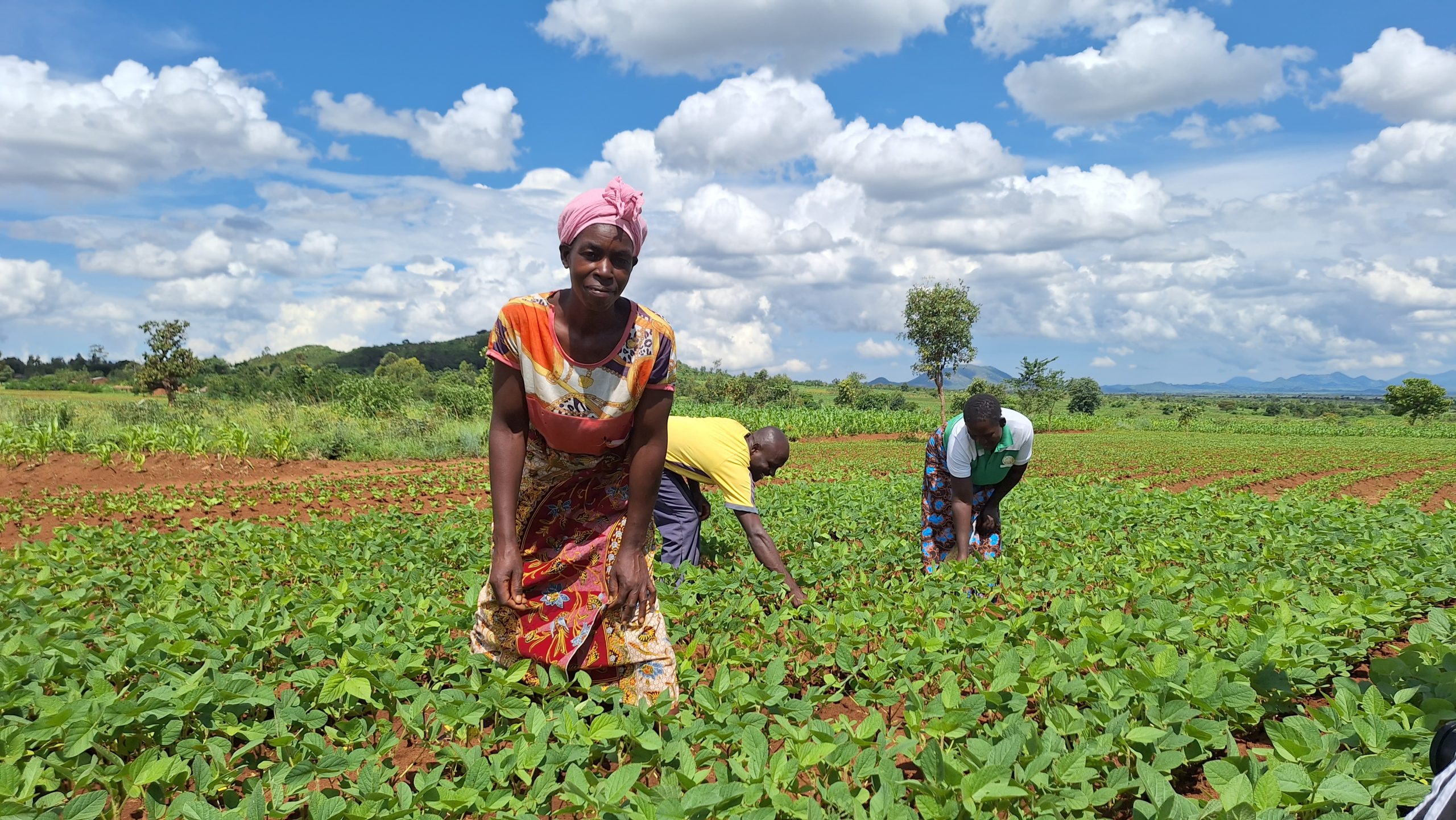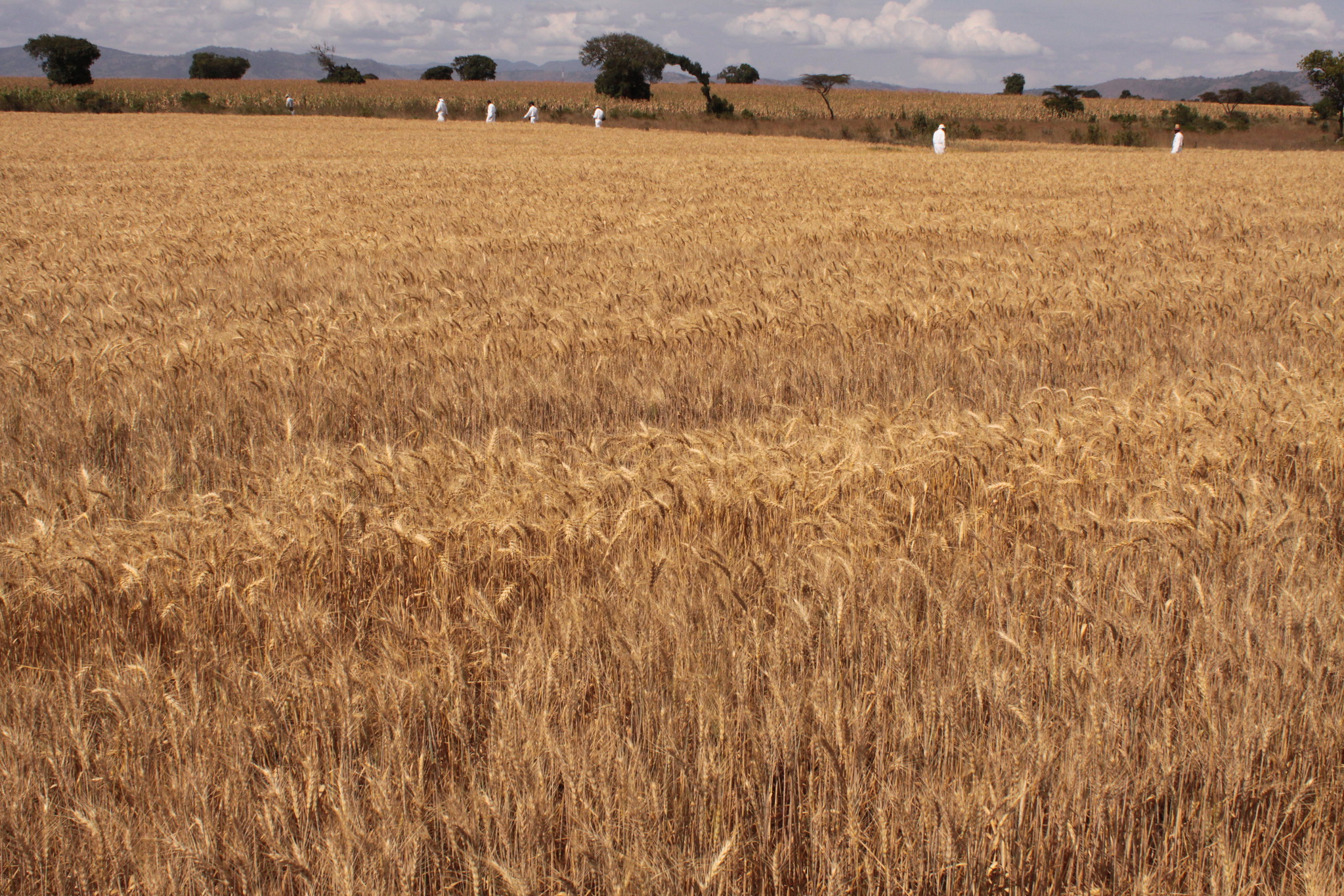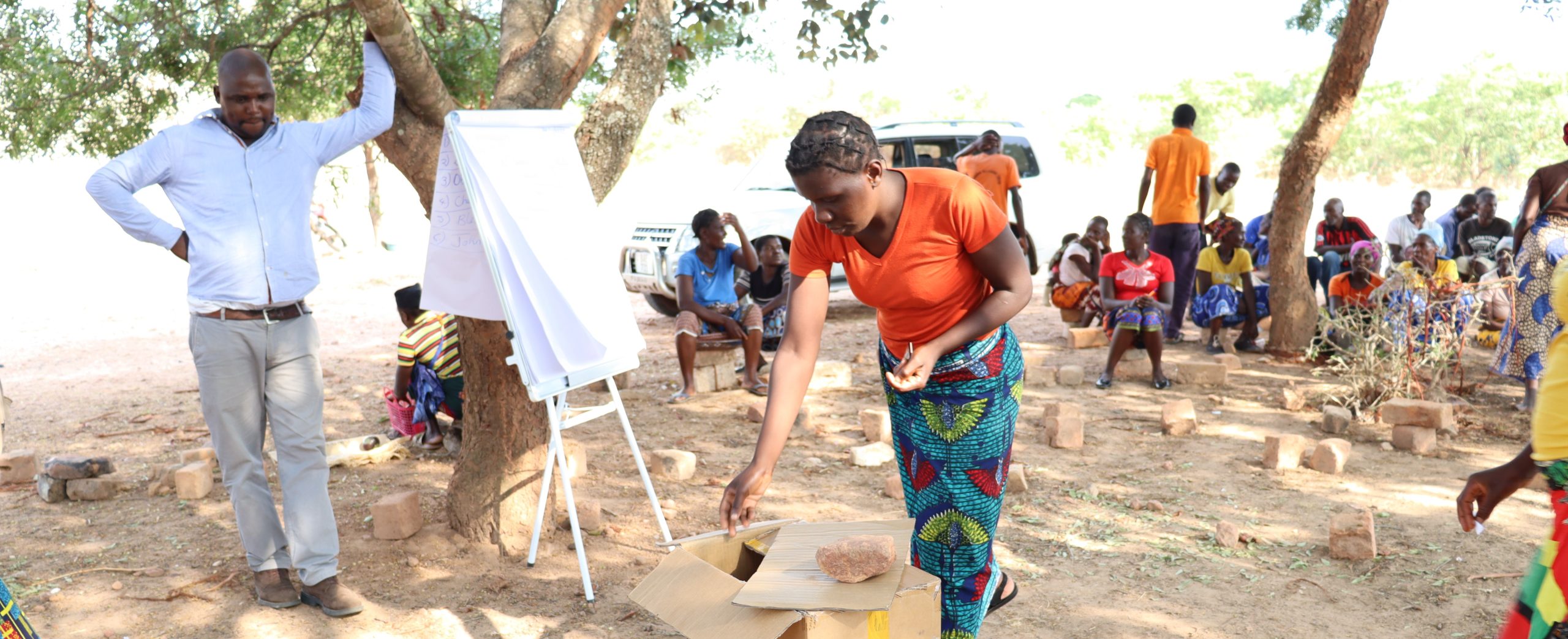Africa
CIMMYT’s work in Africa helps farmers access new maize and wheat systems-based technologies, information and markets, raising incomes and enhancing crop resilience to drought and climate change. CIMMYT sets priorities in consultation with ministries of agriculture, seed companies, farming communities and other stakeholders in the maize and wheat value chains. Our activities in Africa are wide ranging and include: breeding maize for drought tolerance and low-fertility soils, and for resistance to insect pests, foliar diseases and parasitic weeds; sustainably intensifying production in maize- and wheat-based systems; and investigating opportunities to reduce micronutrient and protein malnutrition among women and young children.
Bargaining for Better: How gender roles in household decision-making can impact crop disease resilience
 Gender equality, youth and social inclusion
Gender equality, youth and social inclusion
A study by CIMMYT found a positive association between women’s role in household decisions concerning crop production and the adoption and turnover of rust-resistant wheat varieties.
How Kenya’s plant breeding stations are investing in women in science
 Gender equality, youth and social inclusion
Gender equality, youth and social inclusion
Source: Farmers Review Africa ()
CIMMYT, with CGIAR, boosts gender equality in agricultural research, enriching plant breeding with diverse insights and innovation.
Network develops optimized breeding pipelines for accelerated genetic gains in dryland crops
 Capacity development
Capacity development
The Africa Dryland Crop Improvement Network (ADCIN), NARES, and CGIAR scientists in Africa optimized quantitative genetic criteria for breeding programs and breeding strategies and pipelines for chickpea, pigeon pea, groundnut, sorghum, pearl-millet, and finger millet crops.
No Stones, No Grit! A game-changing technology to process small grain introduced in Zimbabwe
 Capacity development
Capacity development
A locally made, affordable multi-crop thresher offers a convenient post-harvest processing option for smallholder farmers.
Seeds of change: one woman’s mission to transform her community
 Capacity development
Capacity development
In Tanzania, community champions like Venansia Swale play a fundamental role in encouraging the adoption of improved seeds and increasing yields for smallholder farmers.
Enhancing food security and income for smallholder farmers in Angola
 Innovations
Innovations
Source: The World Bank ()
The SADCP in Angola, backed by CIMMYT, significantly boosted food security and incomes for 179,000 farmers by enhancing crop yields and sales through innovative farming practices from 2016 to 2022.
Women farmers turn the tide on soybean production
 Gender equality, youth and social inclusion
Gender equality, youth and social inclusion
In Mozambique, women spearhead efforts to enhance soybean yields with improved agronomic practices, yielding community-wide benefits.
NGOs hold youth business expo in Mwenezi
 Gender equality, youth and social inclusion
Gender equality, youth and social inclusion
Source: The Mirror ()
CIMMYT participated in a Mwenezi business expo aimed at empowering youth through entrepreneurial projects.
Advancing appropriate-scale mechanization in the Global South
 Climate adaptation and mitigation
Climate adaptation and mitigation
Premised on sharing best practices and charting a way forward towards harnessing appropriate scale mechanization, CIMMYT led an engaging meeting with key stakeholders in Zambia.
East African wheat breeding pipeline and E&SSA network
 Climate adaptation and mitigation
Climate adaptation and mitigation
Genetic trials in the region will continue throughout 2024 and 2025 to establish a baseline for genetic gains and to enable the assessment of the breeding pipeline’s progress in the coming years.
Reaching farmers in Zambia
 Capacity development
Capacity development
AID-I conducted a community sensitization to connect Zambian farmers with existing mobile networks that provide agricultural and climate data.
Scientists at NaSARRI to develop iron and zinc bio-fortified sorghum
 Nutrition, health and food security
Nutrition, health and food security
Source: Charmar News ()
CIMMYT, in partnership with NaSARRI and stakeholders, is pioneering a project in Uganda to biofortify sorghum with iron and zinc to reduce malnutrition in East Africa.
Advancing conservation agriculture
 Capacity development
Capacity development
A workshop brings together scientists to share the latest innovations in conservation agriculture to benefit smallholder farmers and reduce the effects of climate change on food production.
STEM the gap: Scientists reflect on women’s increasing participation and visibility in STEM careers
 Gender equality, youth and social inclusion
Gender equality, youth and social inclusion
At CIMMYT, women leaders and scientists work on the pressing issues of our times. They contribute as managers, economists, and scientists – breeders, soil experts, agronomists, GIS analysts, pathologists, etc. Every day they help CIMMYT deliver on its commitment: Science and Innovation for a Food and Nutrition Secure World.
